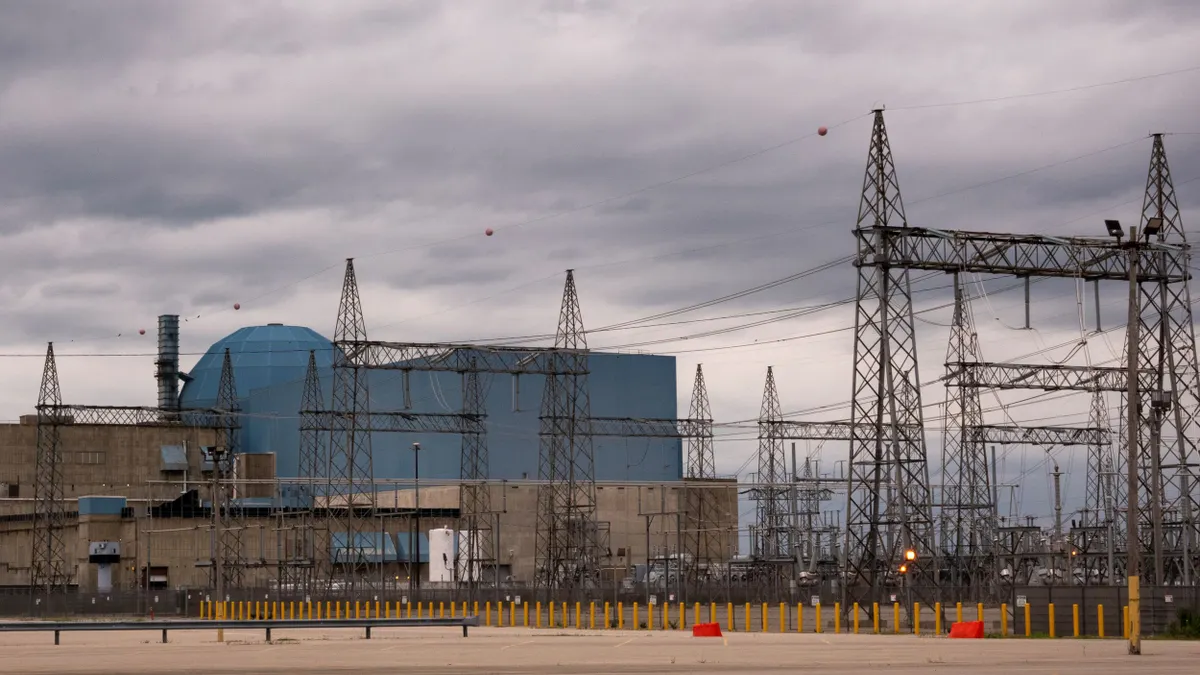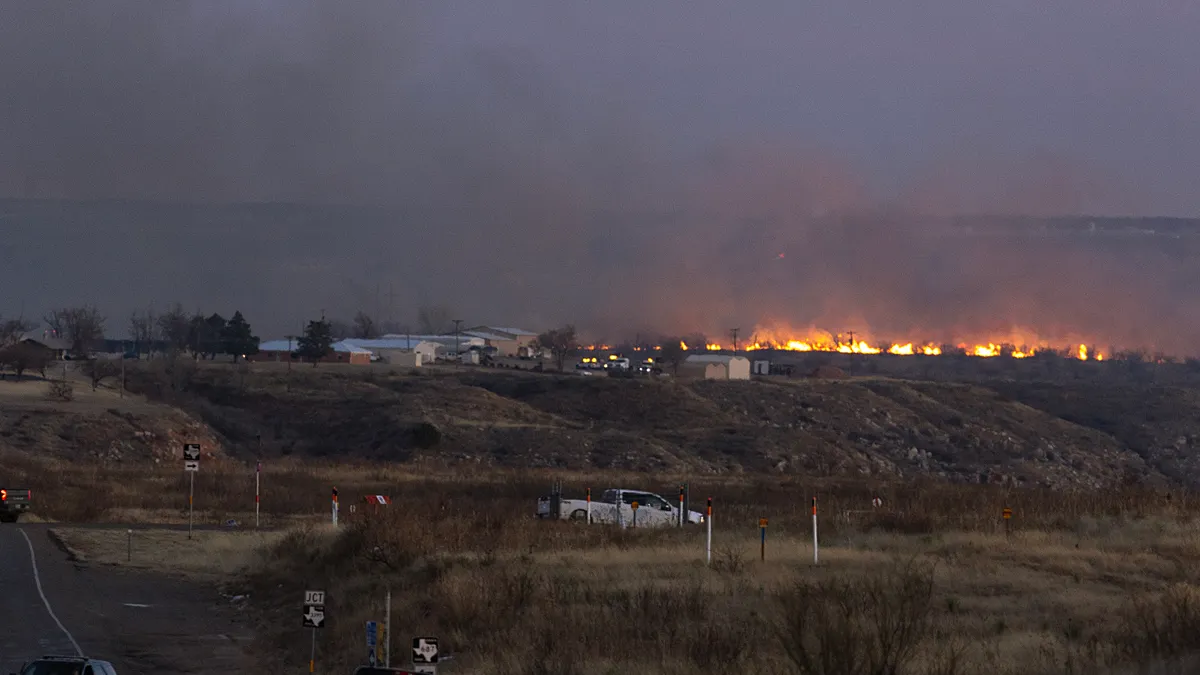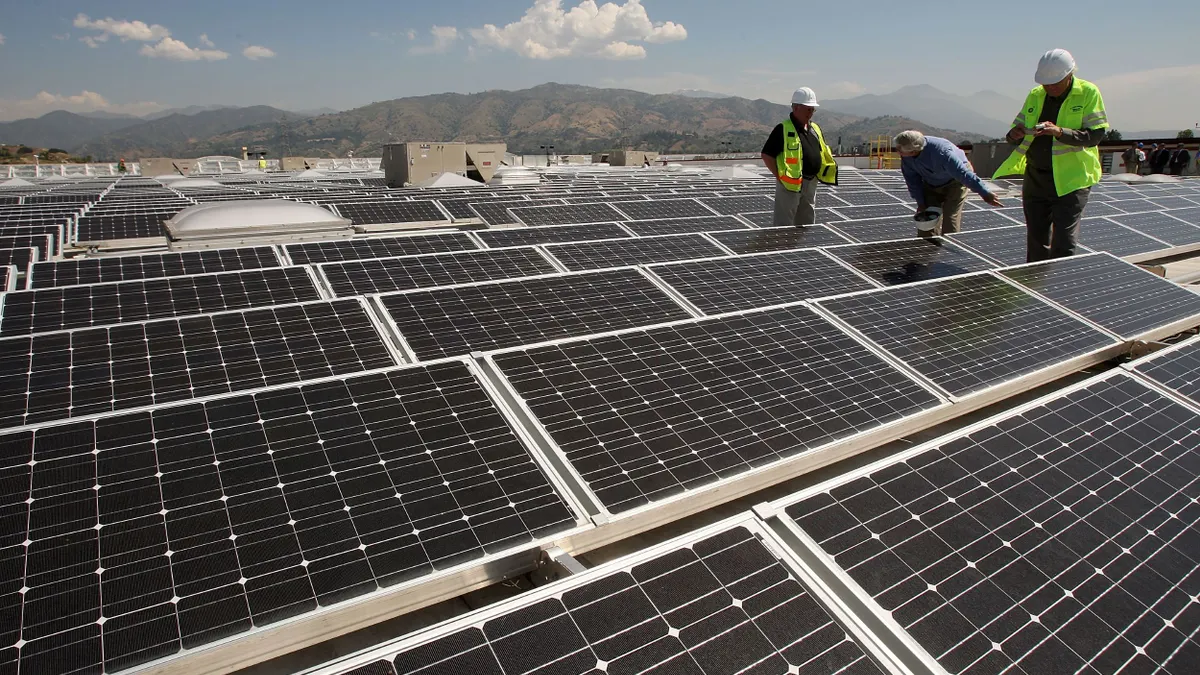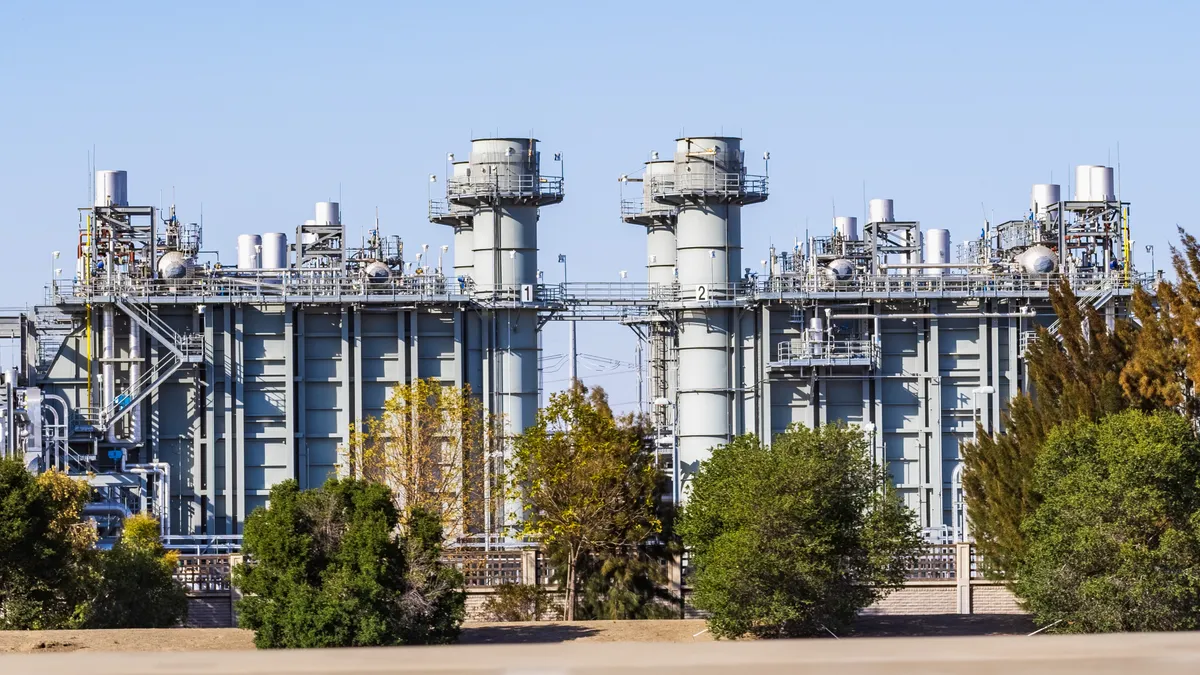The following is a contributed article by Justin Gundlach, a senior attorney at the Institute for Policy Integrity at NYU School of Law; Michael Panfil, a senior attorney at the Environmental Defense Fund; and Romany Webb, a senior fellow at the Sabin Center for Climate Change Law at Columbia Law School.
In a move that could blaze a trail to meaningful climate action nationwide, New York’s Public Service Commission, which is responsible for regulating that state’s utilities, is calling on them to disclose the financial risks they face due to climate change. Requiring utilities to develop and present this information would be a potent way to push a critically important sector of the economy to reveal and respond to the consequences of climate change — and to save consumers money along the way.
In particular, it would help the financial sector and other stakeholders to interpret what utilities are doing (or failing to do), and to adjust accordingly. As we recently argued to New York's Commission, it should forge ahead with this effort, and other states’ commissions should follow their lead.
Publicly-traded companies issue periodic financial reports that provide investors, shareholders, and the public at large important information about what the company is doing and how it is planning for the future. But, when it comes to climate change, companies typically offer uninformative, boilerplate language that provides readers with little (if any) new information.
ExxonMobil’s 2019 annual filing, for instance, did not mention the risks climate change poses to its numerous coastal facilities and, after acknowledging that regulation of the greenhouse gas emissions that cause climate change “could make our products more expensive, less competitive, lengthen project implementation times, and reduce demand for hydrocarbons,” indicated that it plans to respond by pursuing research into “energy breakthroughs.” That was it.
Investors, regulators, the American public, and publicly traded companies themselves are increasingly recognizing that the current approach to disclosure of climate-related risks is a major problem. This year alone, the Federal Reserve Board, the Commodities Futures Trading Commission, and leading public and private sector institutional investors have all called for not just more disclosure, but better disclosure that is detailed, actionable, and supports comparison across companies. Guidelines to help companies do just that have been issued by numerous bodies, including the Task Force on Climate-Related Financial Disclosures, Sustainability Accounting Standards Board, and Climate Disclosure Standards Board.
Utilities rank high on the list of companies that face significant impacts from climate change. This is true with regard to both physical risks, such as more frequent and severe storms and wildfires, and to what has been termed transition risks, meaning changes in policy, technology, and preferences that respond to the causes and effects of a warming climate.
Utilities’ sprawling networks of expensive equipment, coupled with their legal obligation to provide reliable energy services to their customers, expose them inevitably to both types of risk. Their assets and operations must contend with extreme weather events and also slower-moving stressors like rising seas and higher temperatures and humidity, yet they can’t opt out of delivering energy to riskier places, like coastal flood zones. And the long-lived nature of power lines, pipelines, and other assets means that utilities must peer into the future to make responsible investment decisions. In particular, they need to make way for electric vehicles and heat pumps, growing numbers of distributed resources like rooftop solar panels, and declining reliance on natural gas for space and water heating. Whether these transformational changes are ushered in mainly by market forces or with a push from state policymakers, they’re coming, and utilities cannot prudently ignore them.
Recognizing this, firms like BlackRock and Morgan Stanley have singled out the utility sector as needing to come to terms with both the physical risks posed by climate change and the risks arising from a transition to clean sources of energy. Similarly, ratings agencies like Moody’s are paying closer attention to how utilities approach climate-related risks too.
Now the New York Public Service Commission has also weighed in, emphasizing the need for utilities to “robustly and consistently” disclose climate-related risks. The Commission is exploring whether to require disclosures by operating-level utility companies. To date, utility holding companies (which own operating-level utilities) have generally handled climate-related financial disclosures. But leaving disclosure to holding companies, many of which are national or multi-national, has not provided investors and regulators with useful details about the climate-related risks utilities face and how they plan to respond.
Without information about particular assets and operations, the financial community cannot readily reward prudent and farsighted companies with higher stock prices and lower lending costs. This inefficient situation ultimately causes customers to pay more, either for unduly high financing costs charged to utilities whose prudence isn’t visible to investors or for avoidable operating and capital costs that imprudent utilities did not seek to avoid.
Notably, by targeting operating-level companies, New York’s disclosure requirements would also complement the sort of federal climate-related disclosure requirements that President-elect Joe Biden has promised the U.S. Securities and Exchange Commission will issue on his watch. Uncovering the risks created by climate change can unlock far-reaching benefits for these companies, their customers and the public more broadly — from cost savings to improved reliability to enhanced state efforts to address climate-driven threats to public safety.
New York seems to have found a way to let the financial sector push utilities to accelerate progress toward a cleaner, more climate-aware utility sector. Other states should take note and make use of the roadmap it is creating.






















